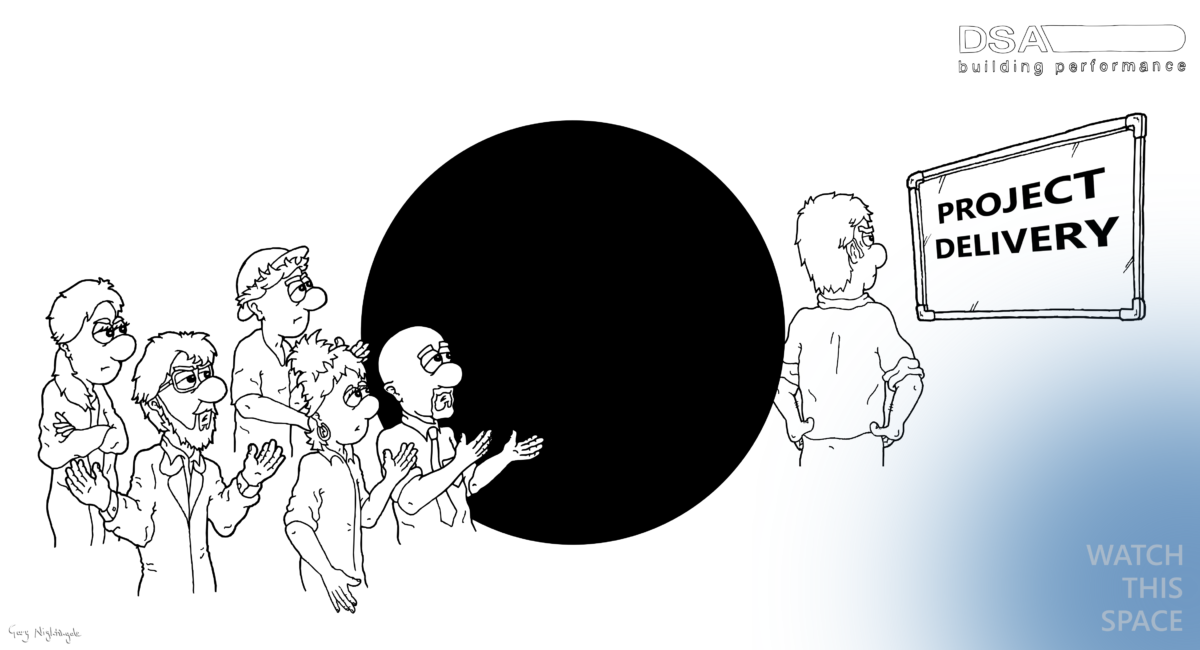Is staff development construction’s blind spot?

When I coach teams leading companies or big projects, I have them set out their top priorities at the beginning of the process and during it, because they shift over time.
These priorities are logged, and they offer an interesting snapshot of what has worried the industry over the years.
Recently, we analysed leadership team priorities from the six years to March 2020, the pre-Covid era, and compared them to priorities logged after the pandemic hit.
Doing what we’re paid to do
Pre-Covid, priorities were all about finding ways to do what we’re “supposed” to be doing.
So, the most common priorities were about driving programme, ensuring quality, communicating better, and developing strategies for everything from winning work and managing a failing subcontractor, to handling clients. Essentially, winning and delivering projects.
After Covid arrived, a new category emerged, which I’ll call “Survival”.
In here are concerns over staff retention and upping workforce levels, protecting revenues, sorting commercial issues, and, as one team expressed it, “preparing for smooth delivery in the new world”.
Something big is missing
All these priorities are sound, but it seems to me that there is something missing, something big, and I think it might constitute a major blind spot in the industry.
I also wonder if this blind spot explains why the industry is so worried, perpetually, about its ability to deliver.
The missing thing is people development. It simply never comes up when I ask leadership teams to agree their top priorities.
That can mean one of two things.


Coach for Results
Designed with young professionals in mind
Perform better in your current role, become an effective manager and over time a great leader and together we will change the construction industry.
Is everything hunky-dory?
It could mean that everything is hunky-dory and that most companies have excellent staff development systems that reliably engage new people and develop them so they grow into happy and superb talents.
Or it could mean that most companies just don’t think about it much.
I’m afraid I think the latter is the truer explanation.
As a wise person observed to me: “It’s to do with the reward system. Managers are paid and incentivised to get the project built, rather than to improve the process.”
Companies are gripped by the challenge right in front of them: protecting the margins of ongoing projects and winning new ones.
We don’t give a lot of thought to the new people coming up behind us, those in their 20s and 30s who are trying to find their way in a complex, high-pressure industry.
Here’s the thing: the processes we have today produce unreliable results. We struggle with them and try to mitigate the problems they create.
Here’s another thing: people in their 20s and 30s will be the custodians of tomorrow’s processes.
If we want processes to evolve, the focus has to be on these younger people.
No one knows what you know
The problem as I see it is this: by the time you hit 45, you’ll have built up 20 years or more of knowledge about what works in construction, and what doesn’t.
This is super-valuable knowledge, but it’s tacit, it’s inside you. There’s no manual, and it would take you years to write one, and it would probably be unreadable.
Nobody can see it or access it, except by observing what you do.
And you’re not alone: everybody with any seniority in your company is walking around with this huge cloud of tacit knowledge locked in their heads.
I think that’s why teams struggle so often to make headway in construction, even when they’re filled with serious and accomplished people.
Individuals are brain-islands of profound tacit knowledge, and there’s no reliable or easy way to create bridges and linkages among these brain-islands.
That takes high-level social skills, which can be rare.
Spreading the knowledge
Last week I floated the idea of changing the industry from the ground up through a new and deliberate approach to coaching, whereby companies embrace coaching as a culture, internally.
This would help release the tacit knowledge of more senior people and spread it around, especially to the 20- and 30-somethings in our midst.
Over time, tacit knowledge locked in the heads of senior people would become explicit, shared – the way we do things around here.
I imagine that a lot of wheel-reinvention would go by the wayside.
I also imagine that it would make the industry more intelligible and more rewarding for younger people.
And instead of “continuous improvement” being a meaningless slogan, it would be the industry’s actual modus operandi.

I think this is worth looking at more deeply. I shall talk with HR and at MD level
Thanks for your interest Mark. You and I and a few others could start the change right now. I’m happy to explain more. Regards, Dave
Hi Dave, a bit of delay responding as I’m over on Greece having a weeks leave. Let’s have a chat soon, I’m back tues.
Hope you are well
Mark